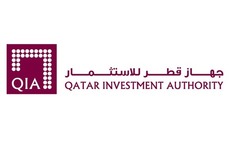
PE recruitment: New territory, new talent
Indonesia has become a priority for global and regional PE firms looking to source deals in a high-growth market. The first step is finding the right people, and it’s not easy
At first glance, the supply of educated international professionals in Indonesia has never been better. A country brimming with growth and opportunity, many of the most talented among its 5.3 million strong diaspora are looking to return home and stake a claim for their slice of the success story. It is hoped that some of them might fill out the ranks of the next generation of domestic private equity talent.
"With all this talk of prosperity, I think there are a lot of talented Indonesians overseas, whether in Australia, the US or Europe, seeing all this wealth being created and thinking, ‘We should be a part of that,'" says Karam Butalia, executive chairman of KV Asia Capital.
While the country's private equity industry is still young it is gaining rapid prominence in the region. According to AVCJ research, of the 22 Indonesia-focused funds that have been launched over last decade, 13 were set up in the last two years alone. Meanwhile, on the investment side, Indonesia accounted for 17% of deals closed in Southeast Asia last year, up from just 6% in 2008.
A mixed bag
However, for many industry participants it has not been plain sailing. A handful of local private equity firms have prospered, cleaning up during the early days of the commodities boom and raising new funds on the basis of those deals.
Two global players also stand out: CVC Capital Partners entered the region early and has completed two sizeable Indonesia deals, with a partial exit from one of them - Matahari Department Store - expected to generate the lion's share of $1.36 billion; TPG Capital formed an alliance with Northstar Pacific Partners, serving as an LP in its initial funds and then entering into a cross-share arrangement with the local GP while continuing to co-invest with it.
The Carlyle Group and Affinity Equity Partners have found deal sourcing more difficult.
Carlyle went through several Southeast Asia executives over several years before finally securing its debut Indonesia deal, buying a 25% stake in telecom tower operator Solusi Tunas Pratama for $100 million last autumn. Affinity opened an office in Jakarta in four years ago but also had to wait until 2012 before investing $100 million in auto services group Mitra Pinasthika Majesty.
Whether a firm thrives or fails in the Indonesia can to a large extent depend on the quality of people it has on the ground and how well they know the terrain. The likes of KKR, Bain Capital, Warburg Pincus and The Blackstone Group are expected to become more active in the country and are looking to hire local dealmakers. But there is no consensus among industry professionals as to availability of this talent.
"The general feeling is that the market is very thin," says Michael Di Cicco, a partner with Heidrick& Struggles in Singapore. "If you want someone to lead investing, then you are typically looking at an Indonesian candidate who has worked in the country for a long time, is Western-educated and has a history of successful investments. But those people are very hard to find."
There is no one-size-fits-all approach for Indonesia and a GP's talent shopping list can vary widely depending on what position they want to fill.
At junior level, for example, it can particularly difficult to identify candidates with global-standard M&A skills and knowledge. "The key issues are finding people with an international perspective, excellent English, and strong, relevant sector experience combined with the technical skill-sets required for analysis," says Charles Yong managing director at executive search firm Korn Ferry in Jakarta.
He adds that most fail to hit the mark because Indonesian bankers are more often used for client coverage support rather than technical execution, which is typically handled by a regional headquarters in Singapore.
When executive search firms seek to fill these roles, candidates are usually sourced from places like investment banks where many will have the technical skills required for M&A transactions. In-house corporate finance teams at major Indonesian conglomerates are another rich source of talent. Once these options are exhausted, head hunters go to management consulting firms where employees have strategic analysis skills and an ability to understand operational improvement, turn-around strategy and business process improvement.
How deep is the pool?
At senior level, the hunt can be more complex. The kinds of individuals in demand are those with additional high-level corporate and government connections. No matter how qualified or experienced they may be, many returnees lack the deep knowledge and on-the-ground relationships to tap into the local business community effectively to source the opportunities.
Hendrik Susanto, managing director at Ancora Capital, remarks that in Indonesia it is simply not enough just to build your team out with those who have worked or studied abroad. Especially when it comes to developing operational expertise, in country with over 300 ethnic groups and 742 different languages and dialects, local knowhow is vital.
"You need to mix your team up with people who might have been educated locally and built their career entirely in-country," says Susanto. "Only with this combination can you leverage local experience and bring the strength of people with international background too."
Ancora focuses in Indonesia's mid-market buy-out space and relies on deep local knowledge to generate deal flow. In addition to technical skills, recruits must be able to operate in the country in a cultural context, and this includes speaking the local language. Susanto notes that the local firms are mostly staffed by Indonesians and the global and regional firms are looking for locals as they build out operations in the country.
Seniority is also important. In a country where title and age are respected, GPs need an industry veteran with credibility that can open doors.
"I think a lot of mid-market companies are still skeptical about private equity, as there isn't a track record in the country yet," says Mark Thornton, managing director at Indonesia Private Equity Consultants (IPEC). "So when they see a young guy turn in a suit with a spreadsheet, they don't believe that he can add value."
Fly in, fly out
In some cases, global firms might approach the market in a slightly different way. Yes, they need the industry veteran with a great rolodex to act as a rainmaker, but if Indonesia is treated as a fly in, fly out market - expected to generate a few large-ticket deals that might be heavily intermediated - then an entire local support team isn't necessary.
"That's why they might be happy initially with just one senior managing director and then, as and when that person sources a deal for them, the execution can be imported from the offices in Singapore or Hong Kong," says Susanto. "It is a lot easier for a global firm with a large team of professionals."
However, as Indonesia becomes a more important investment destination, private equity firms recognize that they need local talent, whether it is on the ground or based out of a regional office in Singapore.
The other option is the TPG approach of teaming up with a local partner. A source familiar with the TPG told AVCJ last year that the firm likely would have located no more than 4-5 people in Indonesia had it decided to go in alone; the alliance with Northstar means it has access to a team of more than 20 investment professionals with strong local networks.
For many, finding the right people is just the first part of the battle; the next hurdle is offering sufficient incentives to get them on your team. GPs are competing for talent in Indonesia not only with one another but also with the investment banks, particularly the global players, which can pay professionals in Indonesia almost in-line with Singapore. The base salaries might be far higher than those offered to junior recruits at PE firms.
"Private equity firms are seeing increasing competition for talent from local corporates, newly arriving multinational corporations and management consultancies," explains Korn Ferry's Yong. "Alongside that is the trend for many well-educated Indonesians to work for family-owned enterprises. It all adds to the challenge of finding and securing talent."
Many GPs also recognize the best candidates are looking at more than just a remuneration package. Given that carried interest can take 3-10 years to crystallize, team dynamics, management style and connectivity with senior leaders play a key role for recruits who appreciate they are in for the long haul.
"From a candidate's perspective, ideally the GP will be into its third or fourth fund, with a record of exits and a team on the ground with very low turnover," explains Jag Dhaliwall, managing director with executive search firm Principle Partners in Singapore.
This ideal scenario is somewhat hard to find in Indonesia, where only two local GPs, Northstar and Saratoga Capital, have raised third funds. First-time funds only have the reputation of their founders to trade on, although it could be argued that entrepreneurial young professionals might recognize value of getting in at the beginning. Dhaliwall notes that the typical Indonesian candidate is far less risk averse than his Singaporean counterpart, who is attracted by the prospect of joining a well-established firm.
"What first time funds can offer is the long-term vision that it could be the next big pan-Asian fund in 5-10 years," he adds. "So the promise of being part of the pioneering team does attract a certain group of people that don't just want to be part of a global firm's Fund IV; they want a sense of ownership that comes with being part of a first-time fund."
Plenty of takers
It seems that those least concerned about the availability of talent are the well-established local PE firms such as Saratoga, which already has a team of 20-plus Indonesian private equity professionals. Devin Wirawan, an investment manager at Saratoga and a member of its HR committee, recognizes the challenges involved in finding talent, but says the firm receives around 50 applications a week from potential candidates via its website.
"We have an entrenched relationship with the business community; most of them are people who we have dealt with in the past," he explains.
KV Asia claims to be in a similar position. While the firm was only set up in 2010 and is still raising its first fund, Butalia's career in Indonesia stretches back to the 1980s when he worked as an investment banker with Citibank. He says the firm has had little trouble hiring staff because he was able to leverage his own connections in the country. For example, the head of the Indonesia office is former colleague from Citibank.
"I think when people say it is difficult, they are coming at it fresh, they haven't been around long enough," says Butalia, who describes Indonesia as being in the second cycle of optimism following a close to 10-year period when the Asian financial crisis wiped the country off international investors' radar. "I think the idea that finding talent is difficult is something of a myth. In the early days, before the crisis, we had some of the most talented people in our Citibank office and they went on to achieve big things."
Heidrick& Struggle's Di Cicco reflects that GPs will have to invest identifying the best candidates in Indonesia, regardless of the specific requirements. Like any other market, he recommends digging under the surface for a talent.
"It is far better scenario for a GP or a portfolio company to spend the time and money in finding somebody who has already been through that learning curve and doesn't need to go and make mistakes on your watch," Di Cicco explains.
Latest News
Asian GPs slow implementation of ESG policies - survey
Asia-based private equity firms are assigning more dedicated resources to environment, social, and governance (ESG) programmes, but policy changes have slowed in the past 12 months, in part due to concerns raised internally and by LPs, according to a...
Singapore fintech start-up LXA gets $10m seed round
New Enterprise Associates (NEA) has led a USD 10m seed round for Singapore’s LXA, a financial technology start-up launched by a former Asia senior executive at The Blackstone Group.
India's InCred announces $60m round, claims unicorn status
Indian non-bank lender InCred Financial Services said it has received INR 5bn (USD 60m) at a valuation of at least USD 1bn from unnamed investors including “a global private equity fund.”
Insight leads $50m round for Australia's Roller
Insight Partners has led a USD 50m round for Australia’s Roller, a venue management software provider specializing in family fun parks.







